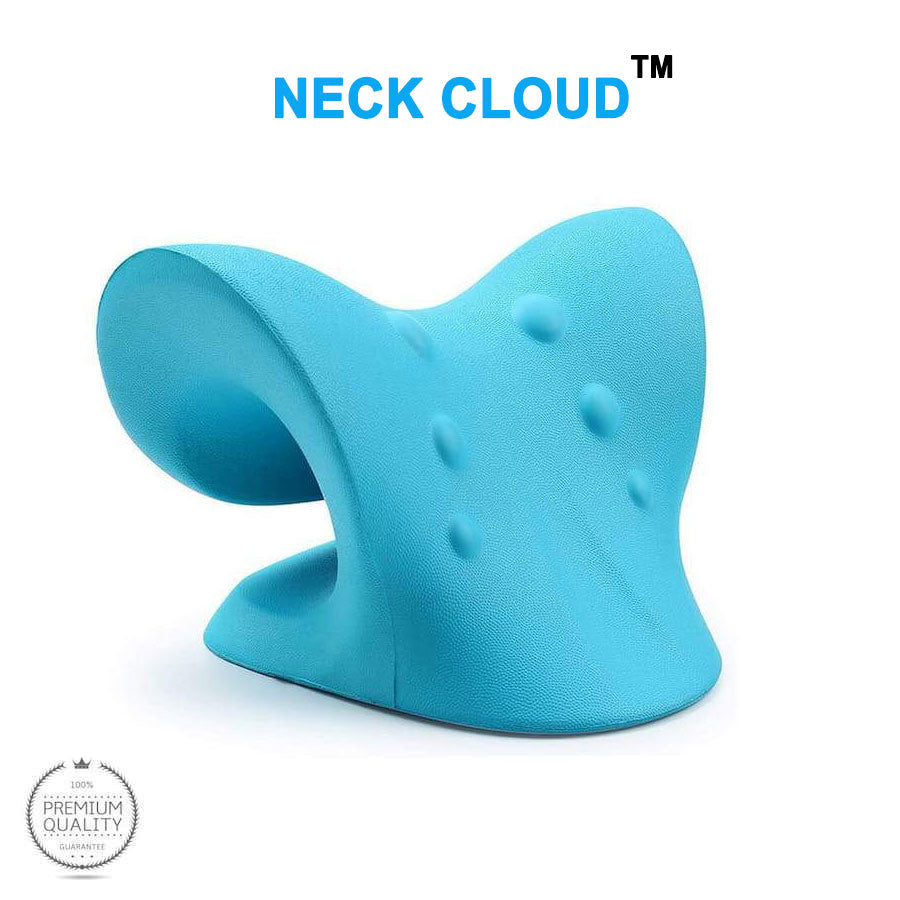Boost Your Position and Reduce Neck Discomfort with the Neck Cloud
Boost Your Position and Reduce Neck Discomfort with the Neck Cloud
Blog Article
The Impact of Stress And Anxiety on Neck Discomfort: Techniques for Minimizing Stress and Discomfort
In today's hectic world, it's no trick that anxiety has become a widespread element in the onset and exacerbation of neck discomfort. Join us on a journey to untangle the effect of anxiety on neck pain and find efficient methods to ease pain and improve overall top quality of life.
Understanding Stress-Related Neck Discomfort
Neck discomfort is a typical issue that can usually be credited to stress and anxiety. Stress-related neck discomfort can materialize as stress, stiffness, or discomfort in the neck and shoulder location. The connection in between stress and neck discomfort depends on the body's physical reaction to stress and anxiety, which can lead to muscle stress and tightness in the neck muscle mass. Chronic stress can cause consistent neck pain and aggravate status quo like cervical spondylosis or muscle mass stress.

Identifying Common Stress Areas
One common tension area is the neck, where tension commonly shows up literally. Tension frustrations, rigid neck muscle mass, and limited array of activity are common signs of stress-related neck stress. Being conscious of these common tension areas can assist people identify the physical signs of stress and anxiety and take steps to address them before they escalate into persistent pain or pain.
Implementing Relaxation Strategies
Relaxation methods are valuable tools for decreasing neck discomfort created by stress and anxiety. Furthermore, tasks like yoga and tai chi integrate both physical movement and leisure, making them efficient practices for lowering anxiety and neck pain. By incorporating these leisure strategies right into your daily routine, you can help take care of tension levels, lower tension in the neck, and minimize discomfort linked with stress-induced neck pain.
Including Self-Care Practices
Including self-care practices is important for keeping overall well-being and handling stress-related neck pain efficiently. Taking part in regular exercise, such as mild extending exercises or yoga exercise, can aid reduce tension in the neck and shoulders. Exercising good posture throughout the day and taking frequent breaks from prolonged sitting click to find out more or display time can also protect against strain on the neck muscular tissues.
Furthermore, focusing on appropriate sleep and developing a consistent rest routine can contribute substantially to reducing stress and anxiety degrees and advertising relaxation. Producing a soothing bedtime routine, such as checking out a book or taking a cozy bath, can assist prepare the mind and body for restful rest. In addition, keeping a well balanced diet rich in nutrients and remaining moistened can support total health and wellness and minimize swelling that might aggravate neck discomfort.
Including mindfulness techniques, such as deep breathing workouts or reflection, can aid handle anxiety and promote leisure. Taking time for oneself, taking part in pastimes, and setting boundaries to protect individual time are also crucial facets of self-care that can add to minimizing anxiety and minimizing neck discomfort.
Seeking Expert Aid
How can people effectively resolve relentless neck pain that is influencing their everyday life and well-being? Seeking professional help can be an important action in handling and alleviating neck discomfort. Consulting with health care experts such as chiropractic doctors, physiotherapists, or orthopedic specialists can supply valuable understandings and individualized treatment strategies. These specialists can perform comprehensive evaluations to detect the underlying root causes of neck pain and suggest ideal interventions.
Chiropractics physician focus on back manipulation techniques to enhance placement and decrease stress in the neck area. Physical specialists use targeted company website stretches and exercises to enhance muscle mass, improve versatility, and improve total neck function. Orthopedic specialists can offer innovative medical interventions such as shots or medical options for severe situations of neck pain.
Conclusion

Stress-related neck pain Web Site can manifest as tension, rigidity, or pain in the neck and shoulder area. The connection in between stress and neck pain exists in the body's physiological response to stress and anxiety, which can result in muscular tissue tension and tightness in the neck muscular tissues. Stress headaches, rigid neck muscle mass, and restricted array of activity are typical signs of stress-related neck tension. By integrating these leisure methods right into your everyday routine, you can assist handle stress and anxiety degrees, minimize stress in the neck, and ease discomfort connected with stress-induced neck discomfort.

Report this page